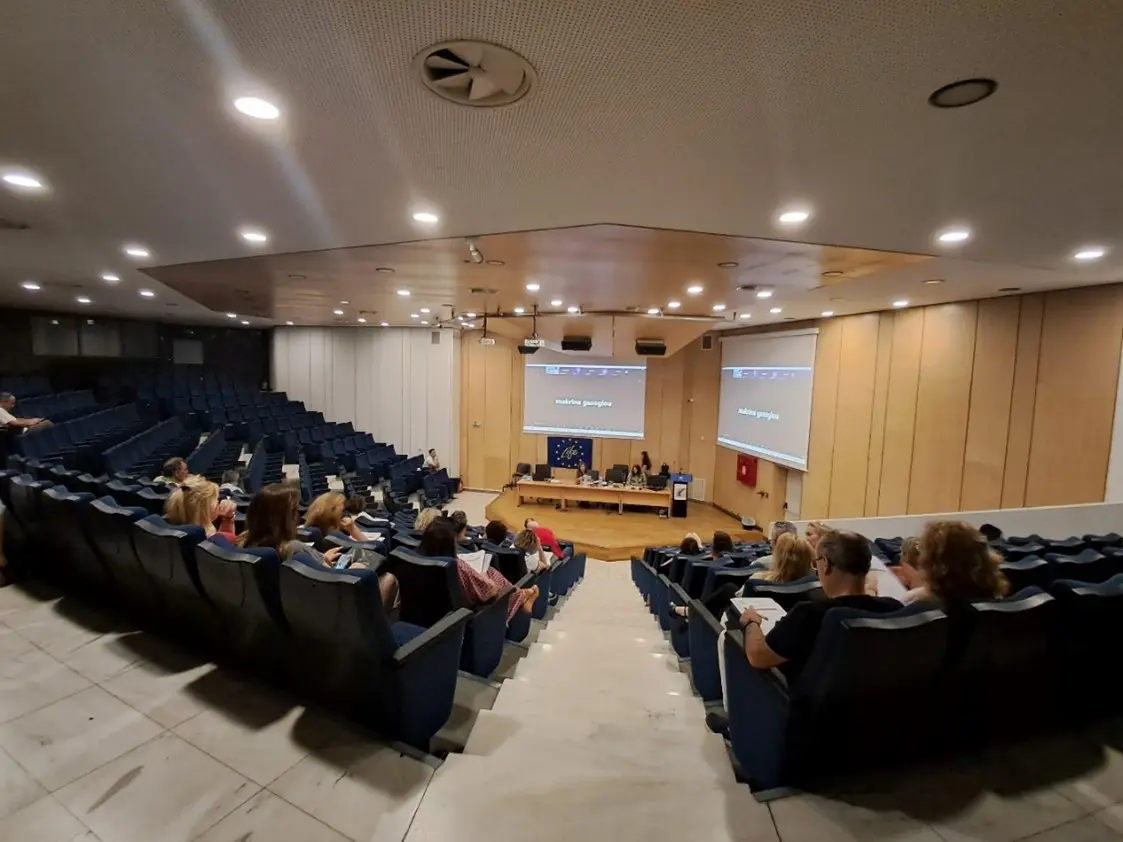The General Directorate of Environmental Inspectors and Auditors of the Ministry of Environment and Energy, as the coordinator of the “LIFE PROWhIBIT” project (Preventing Waste Environmental Crime through “Smart” Inspections), successfully organized a series of three seminars in Athens and Thessaloniki, focusing on the prevention, detection, and deterrence of Waste Environmental Crime (WEC).
With these specialized seminars, the LIFE PROWhIBIT project completed a significant set of actions centered on the training and education of environmental inspectors as well as stakeholders and professionals involved in the prevention and response to WEC.
Co-funded by the LIFE Programme of the European Commission, the project is implemented in collaboration with the Green Fund and the European Union Network for the Implementation and Enforcement of Environmental Law (IMPEL). Its aim is to enhance the effectiveness of inspections through the use of new technologies and to raise awareness among authorities regarding legislation and best practices for combating WEC.
The seminars were held in two rounds:
- The first round from June 17 to 22 (Seminars A & B)
- The second round from July 9 to 12 (Seminar C)
in Athens and Thessaloniki, covering a wide range of topics—from legislation and the national strategy on WEC, to best practices and the role of NGOs and environmental networks in tackling this phenomenon. Participants received valuable knowledge and tools, with a focus on innovative methods and modern inspection tools. The seminars were accessible in person and online via Zoom and Facebook.
Ms. Sofia Eleftheriadou, Deputy General Director of the Ministry’s Inspectorate, opened the first seminar (A) by introducing the project’s goals and stressing the importance of environmental protection and public health.
Ms. Eleni Glypti, Scientific Coordinator of the LIFE PROWhIBIT project and Head of the Environmental Inspection Department for Southern Greece, outlined the project’s key actions and its contribution to the national strategy against WEC. Special emphasis was placed on legislation, with analyses by experienced legal experts and inspectors who presented the European and national legal frameworks.
The second seminar (B) focused on case studies related to the application of criminal law in environmental protection, as well as collaboration with environmental networks and NGOs. These sessions highlighted the critical role such organizations play in fighting WEC. Representatives from various organizations presented best practices and suggestions to improve waste traceability and management.
The third seminar (C) centered on specialized skills and tools for combating WEC. Ms. Eleftheriadou welcomed participants and outlined the seminar’s objectives. Ms. Glypti presented the project and summarized the key points from the previous two seminars. Experts delivered specialized presentations on WEC and tools for its detection.
Other speakers showcased best practices in the use of artificial intelligence, drones, and IT tools from Italy, Hungary, and Austria in the fight against WEC.
Participants, including environmental inspectors, NGOs, volunteer groups, legal experts, and representatives of public bodies, contributed to establishing a collaborative framework for the effective tackling of environmental crime.
The successful conclusion of the seminars confirms the importance of continuing such initiatives to strengthen efforts against WEC, with the active participation of all relevant stakeholders.
We warmly thank all participants for their valuable contributions to the success of these events.
For more information, you can visit the project’s website or social media platforms:
WEBSITE: stopwastecrime.gr
LINKEDIN: linkedin.com/groups/13958017
YOUTUBE: http://www.youtube.com/@spotstopwastecrime8908





